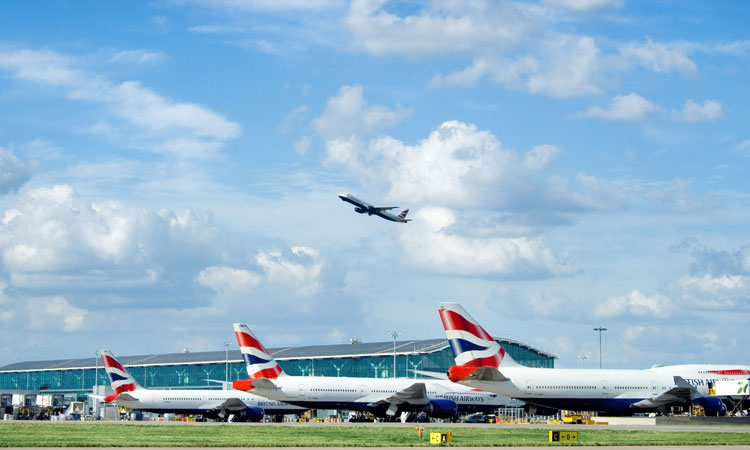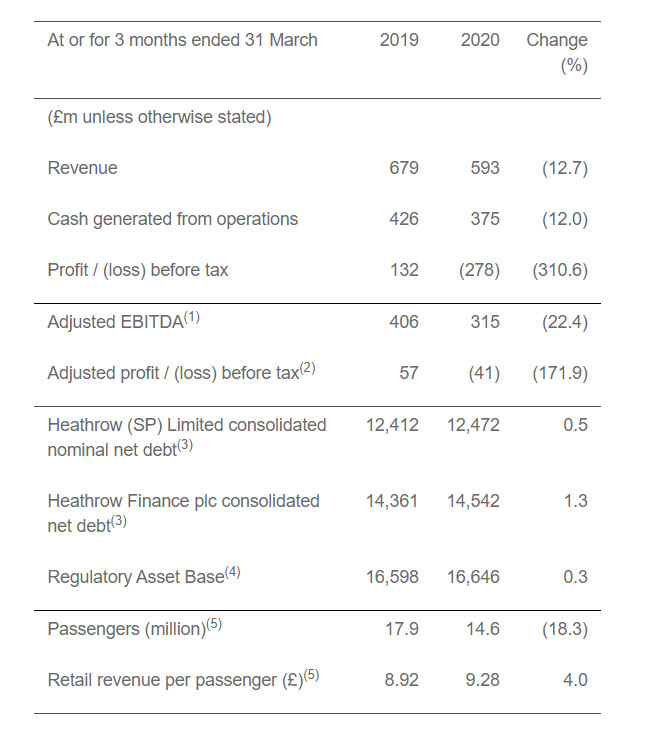London Heathrow outlines the impacts of COVID-19
- Like
- Digg
- Del
- Tumblr
- VKontakte
- Buffer
- Love This
- Odnoklassniki
- Meneame
- Blogger
- Amazon
- Yahoo Mail
- Gmail
- AOL
- Newsvine
- HackerNews
- Evernote
- MySpace
- Mail.ru
- Viadeo
- Line
- Comments
- Yummly
- SMS
- Viber
- Telegram
- Subscribe
- Skype
- Facebook Messenger
- Kakao
- LiveJournal
- Yammer
- Edgar
- Fintel
- Mix
- Instapaper
- Copy Link
Posted: 1 May 2020 | International Airport Review | No comments yet
Heathrow details the impacts of the coronavirus, and how the airport is prepared to survive and recover once travel restrictions are reduced.


At Heathrow Airport, COVID-19 has of course had a significant impact on traffic. Passenger numbers declined by 18.3 per cent during Q1 to 14.6 million and are expected to be down by approximately 97 per cent in April.
The airport expects passenger demand will remain weak until governments deem it safe to lift the travel restrictions. Heathrow’s overall revenue fell 12.7 per cent to £593 million and adjusted EBITDA fell by 22.4 per cent to £315 million
Currently, Heathrow remains open and continues to operate, helping people get home and securing vital supply lines for the UK.


Heathrow Airport’s figures for three months ending 31 March
The airport’s management team responded quickly, taking immediate action to conserve cash and reduce costs by around 30 per cent. This was achieved through cutting management pay, renegotiating all contracts and consolidating operations. Capital expenditure has been cut by £650 million. Therefore, the airport believes its financial position to be robust: Heathrow has £3.2 billion in liquidity, sufficient to maintain the business for at least the next 12 months, even with no passengers.
Heathrow CEO, John Holland-Kaye, said: “Heathrow is proud to serve Britain by remaining open for repatriating UK citizens and critical supplies of PPE. When we have beaten this virus, we will need to get Britain flying again so that the economy can recover as fast as possible. That is why we are calling on the UK government to take a lead in setting a Common International Standard for safe air travel.”
Heathrow is working with partners round the world to establish a Common International Standard for safe air travel to help the economy recover from the COVID-19 crisis. Re-establishing long haul passenger flights is critical for the UK’s supply chain, exports, inbound tourism and education.
Related topics
Aeronautical revenue, Airport crisis management, COVID-19, Non-aeronautical revenue


















